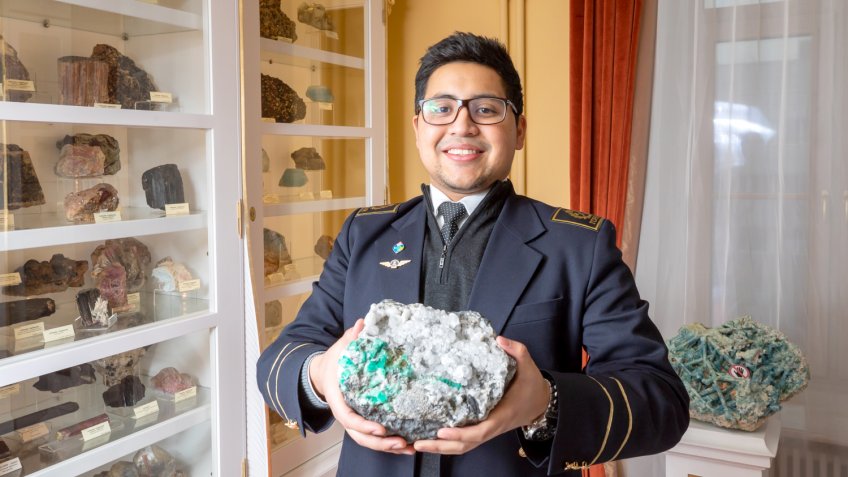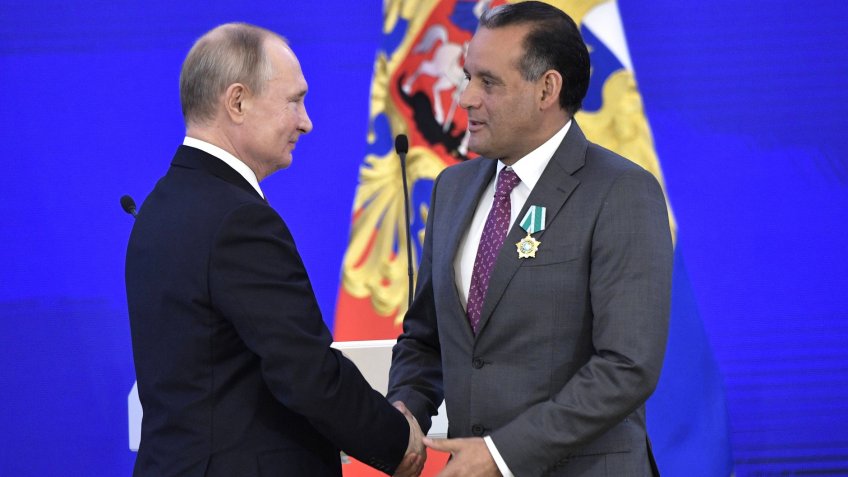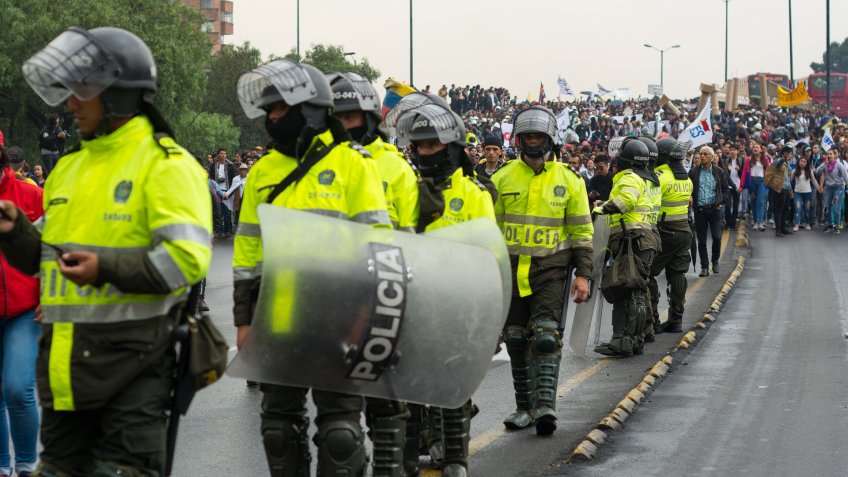
Before changing his life drastically and moving to St. Petersburg, Jerson Martínez Parry, a student from Columbia, graduated from the Educational Corporation Indoamericana (Corporación Educativa Indoamericana) and the Institute of Languages and Culture named after Leo Tolstoy (Instituto Cultural León Tolstoy).
Jerson Andres Martínez Parry, now a student of the Mining University, recalls "I was born and spent all of my childhood at Tolemaida Air Base in Melgar. It is a Colombian military airbase, and only army people and their families lived there. My mother worked for the Colombian army, with her specialisation being the maintenance of American and Russian helicopters. At that time, there were many Russians employed and working at the base, largely because of military equipment shipments being heavily dependent on imports from Russia. My passion for aviation and interest in the distant northern country that people around me were talking about - I think they grew in me simultaneously".
As Jerson's family could not afford their son to study abroad, Jerson, once he had graduated from school, applied to the Educational Corporation Indoamericana. Four years later, he became a helicopter maintenance technician. Jerson was lucky enough to be employed by Aserpa, a large Colombian company working closely with Russian partners. The company's executives encouraged Jerson's interest in learning Russian, and, in the end, he was granted a scholarship. That allowed him to start studies at the Institute of Languages and Culture named after Leo Tolstoy, an institution located in Bogotá, the capital city of Colombia. Throughout the day, the young fellow was taking care of helicopters. And in the evenings, he was learning the Russian language.
As the Colombian student explains, "In my country, it requires a lot of work to build a career and earn an adequate salary. We do not get anything just because we were born in Colombia or because we hold the country's citizenship. We should always stay alert! I wanted to evolve in the field of mechanical engineering, so I decided to enter the Central University. I continued my studies at the Faculty of Engineering".
Tuition fees paid at private universities of Colombia range from €2,200 to €11,700 per year for Bachelor's degrees. Master's Degree students end up paying from €2,200 to €8,150/year. Very few families have enough money so their children can pursue higher education. Out of 40 Jason's former schoolmates, only 12 got a vocational or university degree. They work now as engineers, doctors, economists, builders. In contrast, those who have only school education go to work as salespeople, drivers, or waiters.
When Jerson's internship at Aserpa came to an end, the CEO, who was aware that the young man wanted to study in Russia, recommended him to get in touch with Rossotrudnichestvo. Rossotrudnichestvo is short for the Federal Agency for the Commonwealth of Independent States, Compatriots Living Abroad and International Humanitarian Cooperation. It is an autonomous Russian federal government agency under the jurisdiction of the Russian Ministry of Foreign Affairs. Thus, Jerson found out he had a chance to compete for the state-funded study place in one of the Russian universities. The year when he applied, 95 quotas were allocated for the whole of Colombia. The number of applicants, however, reached a thousand.
Jerson says, "As of now, I am the only Colombian student at the Mining University. People usually think I am studying oil & gas or geology. It is understandable - Colombia is known for its large deposits of hard coal, oil, gas, emeralds. Therefore, everyone becomes surprised when they find out I am studying mechanical engineering and hoping to continue working in aviation. Strange as it may seem, but the Department of Mechanical Engineering at the Mining University provides even better teaching quality than specialised engineering schools".
In the beginning, Jerson used to compare - often unintentionally - specifics of studying in a Russian university with the Colombian ones he had previously gone to. First of all, the amount of workload, as he mentions, varies greatly. According to the student, academic requirements in Bogotá are more than low. One can easily master the educational program while working and learning a couple of foreign languages at the same time.
Then, teachers' attitudes towards youth differ. The Colombian approach is as follows: "Study if you want to, do not study if you do not want to, but above all do not forget to pay. After all, it is up to you to how you use your money." Partly because of it, so many employers value overseas education a lot higher than the local one. The most valued are Russian, American, German, and British universities.
There is also a massive gap in infrastructure quality:
Jerson comments, "From my point of view, engineering education is something that cannot exist without practical training, use of machines and simulators, working in labs. At the Central University, if we were to be told how in principle a particular device works, it was always an oral explanation. A simple example: when learning how to use a certain software product, four students on average have to work on one computer. Here, in Russia, all the mentioned resources and facilities are available to each student".

